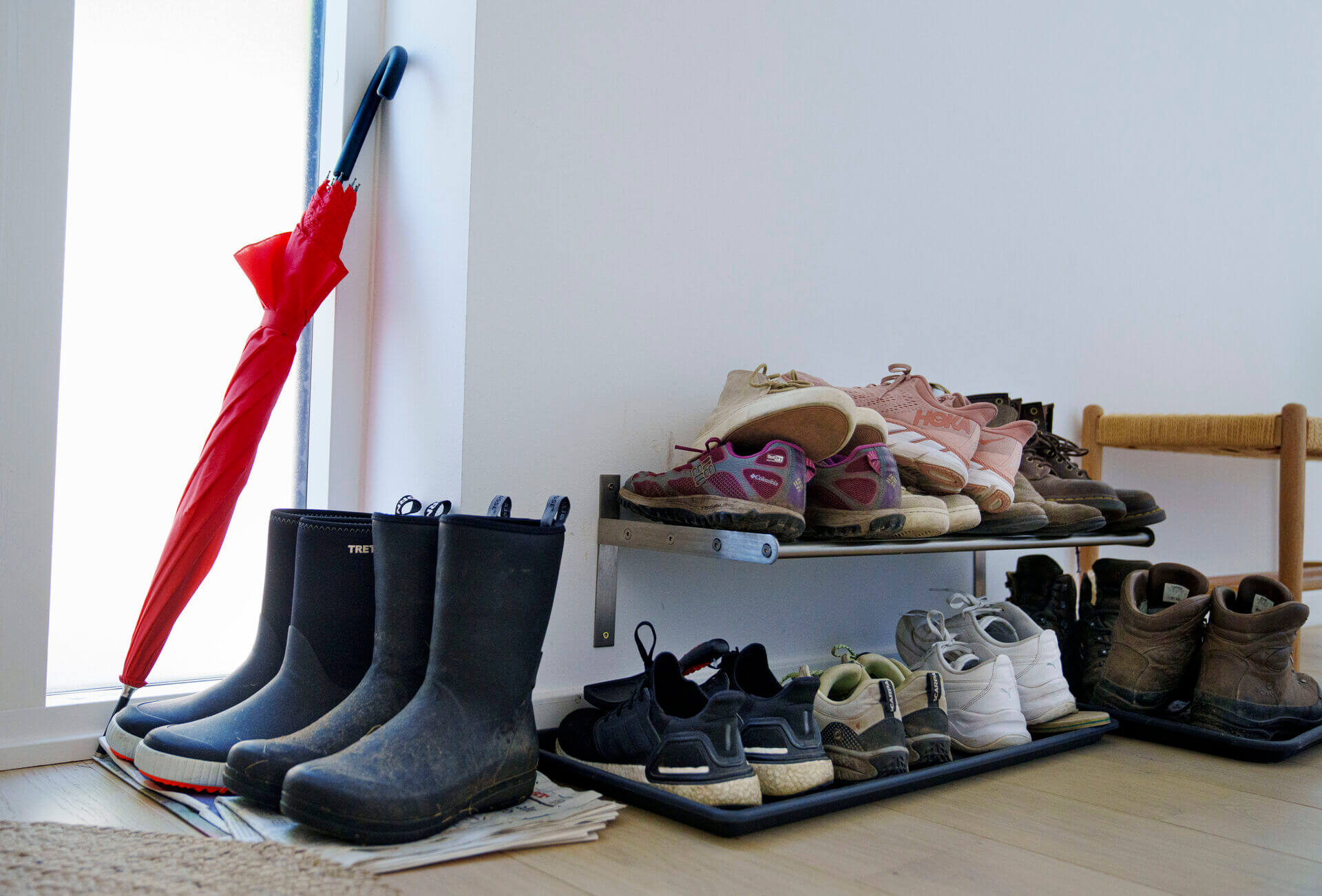Five Danish social norms you might find surprising

If you’ve lived in Denmark for a while, you might be acquainted with social conventions particular to the Scandinavian country. For others who have recently relocated, certain things might come as a surprise.
Here are five Danish cultural norms that probably feel natural for those who grew up in Denmark, but are far from commonplace elsewhere.
Small talk with strangers
Try passing the time of day with somebody in a supermarket queue or on public transport and you are likely to end up feeling as welcome as the proverbial fox at a chicken convention.
Don’t take it personally, though. Casually greeting strangers is just not the done thing in Denmark, particularly in cities, where people who live in the same building pass each other on the stairs with a steely resolve not to acknowledge each other’s presence.
Although this can feel incredibly unfriendly if you’re not used to it, it reflects Danes’ tendency to eschew superficial relationships and only be personal when they are sure both sides are comfortable with the situation.
READ MORE: 'They act like you are complete strangers': Why it's hard to make friends with Danes
Wearing shoes indoors
Go to Korea, Japan, the Middle East or countless other places and you’ll learn very quickly that it’s incredibly discourteous not to take your shoes off when you enter someone’s home. In Denmark, the lines are more blurred on this point.
There’s nothing wrong with automatically taking your shoes off indoors, but it’s just as normal to ask your host whether this is necessary.
If you see others wearing shoes inside, you can assume it's fine to do the same yourself. There’s no black-and-white rule on this in Denmark, so in some cases you will find everyone is walking around in socks or even slippers (which many bring with them when visiting friends).

Photo: Liselotte Sabroe/Ritzau Scanpix
Avoiding conflict
Reaching consensus is a key part of Danish culture, even in the current political climate of polarisation – in any disagreement, argument or discussion, the two sides commonly keep the dialogue going until some element of common ground can be found, no matter how small.
This perhaps reflects the culture of joining associations, societies and unions that is a big part of Danish public life. It is also reflected in long-running disputes between public employers and unions, such as the recent air traffic control dispute between the supplier at Copenhagen Airport and the trade union for its employees.
Keep this in mind if you find yourself engaging in a discussion with a Dane – whether this is about football, politics or X Factor, it’s probably best not to walk away until you’ve found something you can both nod along to.
Don’t brag
The Law of Jante, or Janteloven, is a code of conduct that has been around for centuries across the Nordic countries and still pervades the Danish subconscious today. The concept can be summed up with a phrase that is not unusual to hear in Denmark: 'du skal ikke tro, du er noget' – literally, ‘don’t believe you’re anything (special)’.
That sounds like a drab way to tell people not to believe in themselves or try anything innovative or break with conventions, and it is commonly criticised for these reasons, not least by Danes themselves. But at the same time, it means personal success is often received with an admirable level of natural humility and dignity.
In short, if you have run a marathon, completed your studies or moved to a new apartment, then by all means let people know on social media or in person, but go easy on the showmanship – or you might be considered 'for meget' (too much or over the top).
READ ALSO: 26 sure-fire ways to truly offend a Dane ✎
It’s your birthday? You buy the cake
If it’s your birthday, don’t expect to receive the adulation of colleagues unless you bring in something sweet to set the celebrations in motion.
READ ALSO: Why do Danes cover each other in cinnamon on their 25th birthdays?
The expectation in Denmark is that the birthday girl or boy provides cake to mark the occasion. If you do this, however, you’re likely to be heartily congratulated all day, and probably for several days afterwards by anyone who didn’t see you on the day itself (even if that means they missed out on the cake).

File photo: Stine Munk Jensen/Ritzau Scanpix
Do you disagree with any of the points listed in this piece? Did we miss anything? Let us know and we might include your suggestions in a future article.
Comments
See Also
Here are five Danish cultural norms that probably feel natural for those who grew up in Denmark, but are far from commonplace elsewhere.
Small talk with strangers
Try passing the time of day with somebody in a supermarket queue or on public transport and you are likely to end up feeling as welcome as the proverbial fox at a chicken convention.
Don’t take it personally, though. Casually greeting strangers is just not the done thing in Denmark, particularly in cities, where people who live in the same building pass each other on the stairs with a steely resolve not to acknowledge each other’s presence.
Although this can feel incredibly unfriendly if you’re not used to it, it reflects Danes’ tendency to eschew superficial relationships and only be personal when they are sure both sides are comfortable with the situation.
READ MORE: 'They act like you are complete strangers': Why it's hard to make friends with Danes
Wearing shoes indoors
Go to Korea, Japan, the Middle East or countless other places and you’ll learn very quickly that it’s incredibly discourteous not to take your shoes off when you enter someone’s home. In Denmark, the lines are more blurred on this point.
There’s nothing wrong with automatically taking your shoes off indoors, but it’s just as normal to ask your host whether this is necessary.
If you see others wearing shoes inside, you can assume it's fine to do the same yourself. There’s no black-and-white rule on this in Denmark, so in some cases you will find everyone is walking around in socks or even slippers (which many bring with them when visiting friends).

Avoiding conflict
Reaching consensus is a key part of Danish culture, even in the current political climate of polarisation – in any disagreement, argument or discussion, the two sides commonly keep the dialogue going until some element of common ground can be found, no matter how small.
This perhaps reflects the culture of joining associations, societies and unions that is a big part of Danish public life. It is also reflected in long-running disputes between public employers and unions, such as the recent air traffic control dispute between the supplier at Copenhagen Airport and the trade union for its employees.
Keep this in mind if you find yourself engaging in a discussion with a Dane – whether this is about football, politics or X Factor, it’s probably best not to walk away until you’ve found something you can both nod along to.
Don’t brag
The Law of Jante, or Janteloven, is a code of conduct that has been around for centuries across the Nordic countries and still pervades the Danish subconscious today. The concept can be summed up with a phrase that is not unusual to hear in Denmark: 'du skal ikke tro, du er noget' – literally, ‘don’t believe you’re anything (special)’.
That sounds like a drab way to tell people not to believe in themselves or try anything innovative or break with conventions, and it is commonly criticised for these reasons, not least by Danes themselves. But at the same time, it means personal success is often received with an admirable level of natural humility and dignity.
In short, if you have run a marathon, completed your studies or moved to a new apartment, then by all means let people know on social media or in person, but go easy on the showmanship – or you might be considered 'for meget' (too much or over the top).
READ ALSO: 26 sure-fire ways to truly offend a Dane ✎
It’s your birthday? You buy the cake
If it’s your birthday, don’t expect to receive the adulation of colleagues unless you bring in something sweet to set the celebrations in motion.
READ ALSO: Why do Danes cover each other in cinnamon on their 25th birthdays?
The expectation in Denmark is that the birthday girl or boy provides cake to mark the occasion. If you do this, however, you’re likely to be heartily congratulated all day, and probably for several days afterwards by anyone who didn’t see you on the day itself (even if that means they missed out on the cake).

File photo: Stine Munk Jensen/Ritzau Scanpix
Do you disagree with any of the points listed in this piece? Did we miss anything? Let us know and we might include your suggestions in a future article.
Join the conversation in our comments section below. Share your own views and experience and if you have a question or suggestion for our journalists then email us at [email protected].
Please keep comments civil, constructive and on topic – and make sure to read our terms of use before getting involved.
Please log in here to leave a comment.